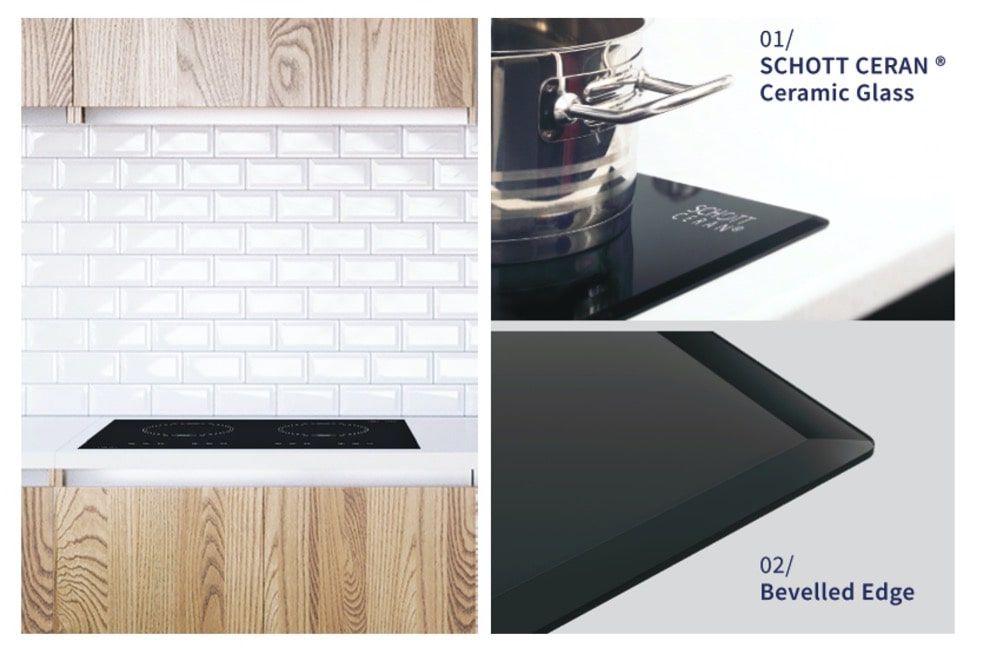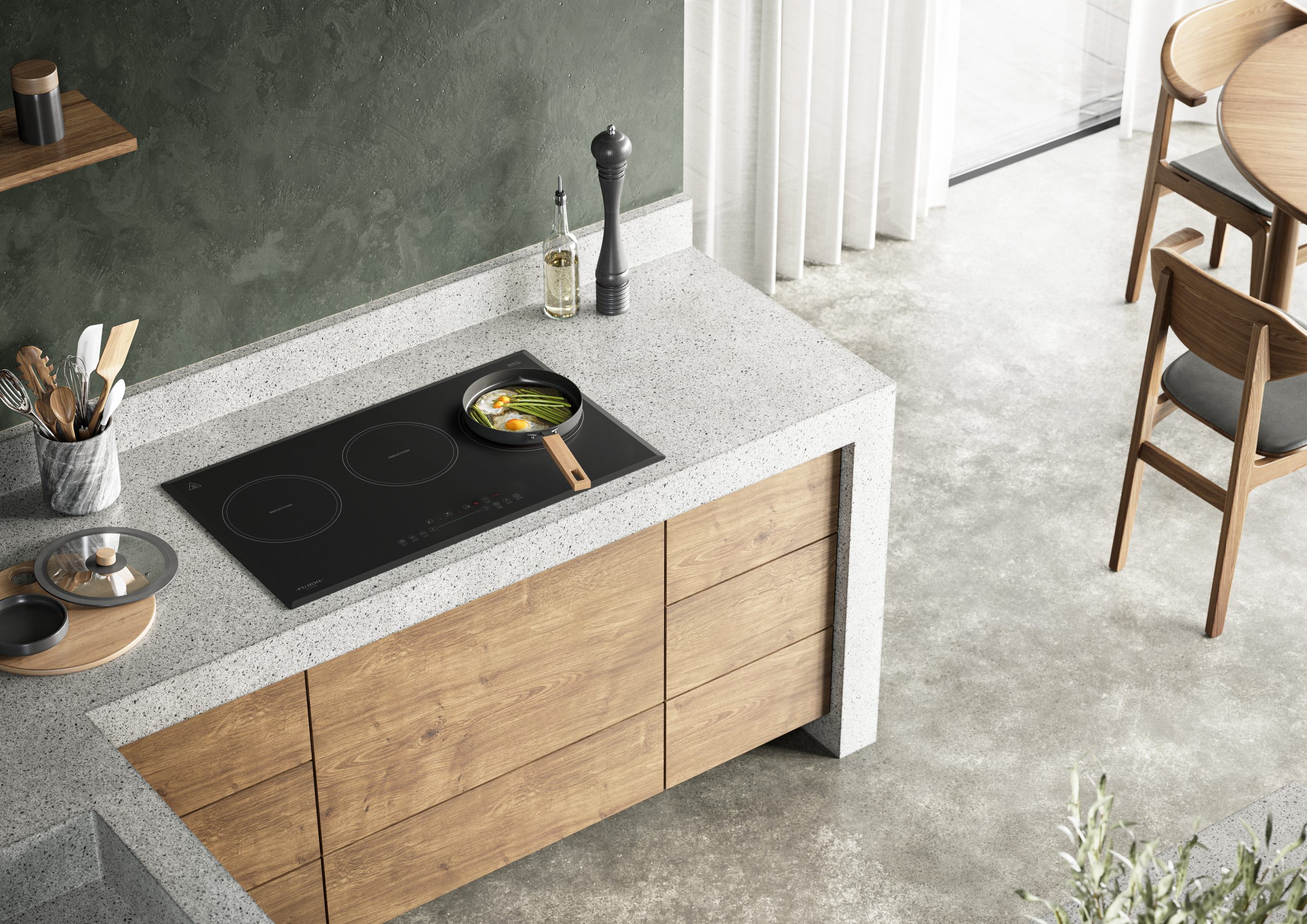
Featured product: FUJIOH Induction Hob FH-ID5120
When searching for the right kitchen hob, chances are you’ll get confused between the various types of hobs such as gas, ceramic, and induction. While gas hobs can be traditional, a gas cylinder is rather bulky and can take up a lot of space in compact homes.
Induction hobs, on the other hand, are sleeker and easier to clean and maintain with their flat surface glass cooktop. This makes them a must-have for minimalistic kitchens and homeowners who want a quick meal and easy-to-clean cooktop.
Essentially, induction cooking involves using magnetic induction to directly heat compatible pots and pans such as stainless steel and induction cookware. This magnetic field is generated by electricity, which powers your induction hob.
Consequently, the induction hob generates an electromagnetic field beneath the glass surface and heats the compatible cookware. If you place a non-induction pan on the induction hob, it will not prompt any reaction, resulting in zero heat. This makes it highly safe and efficient at heating and maintaining the precise cooking temperature.
There’s no denying that induction hobs can deliver incredible versatility and superb cooking results. However, that depends on the features that each induction hob can offer. Among the features that you should look for are:
An induction hob with a safety sensor can reduce cooking hazards in the kitchen, especially while the cooktop is switched on. It helps to monitor the temperature of the bottom of the cookware, should you leave an empty pan on it. When the sensor detects that, it can help to adjust the power output or even switch it off to avoid damage to the cookware or hob.
As induction hobs typically use high wattage of power, some have power management systems in them to divide the power between the cooking zones equally. This will enable optimum use of power between the cooking zones.
This feature is by far one of the most important ones that you should look for because it helps reduce cooking hazards and energy wastage. The induction hob will not work if there’s no pot or pan on the heating zone or the pain isn’t suitable. When the cookware is removed from the heating zone, it stops the hob from operating.
With the increased use of digital and touch controls in cars and home appliances, it’s no surprise for induction hobs to have controls embedded into their surface. Besides, it makes for easy cleaning and maintenance since you don’t have to constantly turn the knob to ignite the hob like how you do your gas hobs.
Since the induction hob will be installed at a level that’s easy and convenient for you to cook, you will need to make the extra effort in getting an induction cooktop that offers a child lock. This will prevent unwanted accidents from happening. After all, the danger of an induction hob isn’t as high as with a gas cooktop.
Your induction hob’s surface material should be of high quality such as SCHOTT CERAN®Ceramic Glass with bevelled edge. This will not only make your cooktop look sleek and beautiful, but it’s also durable and easy to care for with just a simple wipe after every use. Plus, the ceramic glass can withstand high temperatures so it’s more durable than the normal glass cooktop.

Featured product: FUJIOH Hybrid Hob FH-IC7020
For the most part, induction and ceramic hobs tend to look the same – offering the same streamlined, glass look and smooth surface. In addition, the controls are placed at the same position and usually offer similar functions such as power on/off, temperature/heat control, etc. The similarities aside, induction and ceramic hobs differ from each other in the aspects below:
Ceramic hobs work by having a heating element underneath each cooking zone. When these are powered on, heat is lost and wasted, making them less energy efficient than induction hobs. Consequently, this causes ceramic hobs to take much longer to heat up and cool down.
Induction hobs, on the other hand, only heat the part of the surface that comes into contact with your pots and pans. The heating speed is much faster than ceramic and gas hobs. Subsequently, induction hobs can cool down a lot faster.
Ceramic hobs are quickly becoming a thing of the past. Meanwhile, induction hobs continue to have new developments with new features to make cooking easier and safer in the kitchen. Some of the features that you can get with induction hobs are flexi-zone and power slide which allows you to create a larger cooking zone and change the power settings.
While induction hobs only work with compatible pots and pans such as cast iron or magnetic stainless steel, this cookware typically lasts much longer than your regular non-stick pan. Ceramic hobs, however, work with all types of pots and pans.
At FUJIOH, we offer several models of induction hobs with different cooking zone sizes, and a hybrid hob if you’re looking for a 2-in-1 induction + ceramic hob. Should you require more information on the hobs, get in touch with us at Fujioh Malaysia or email enquiry@fujioh.my.